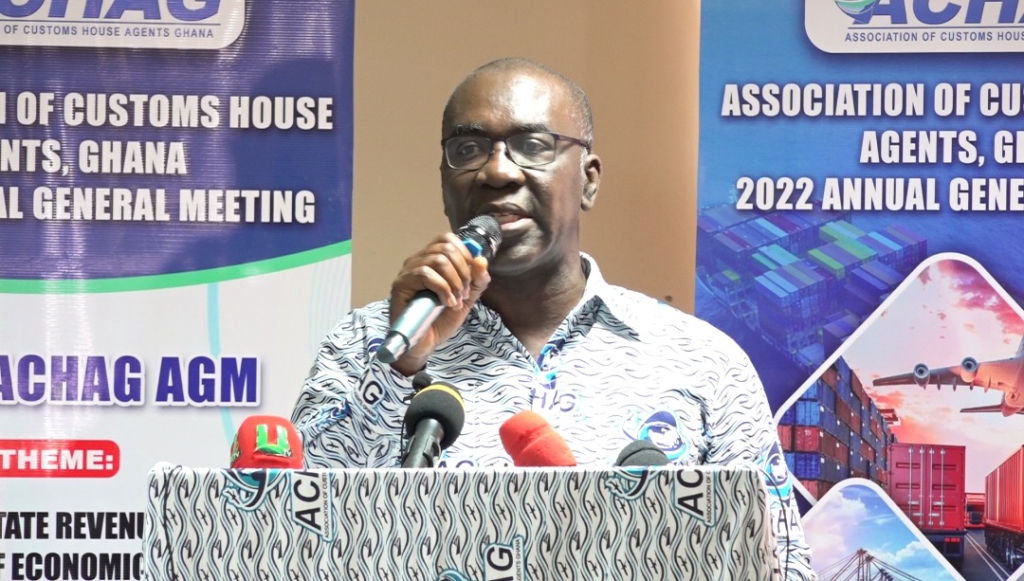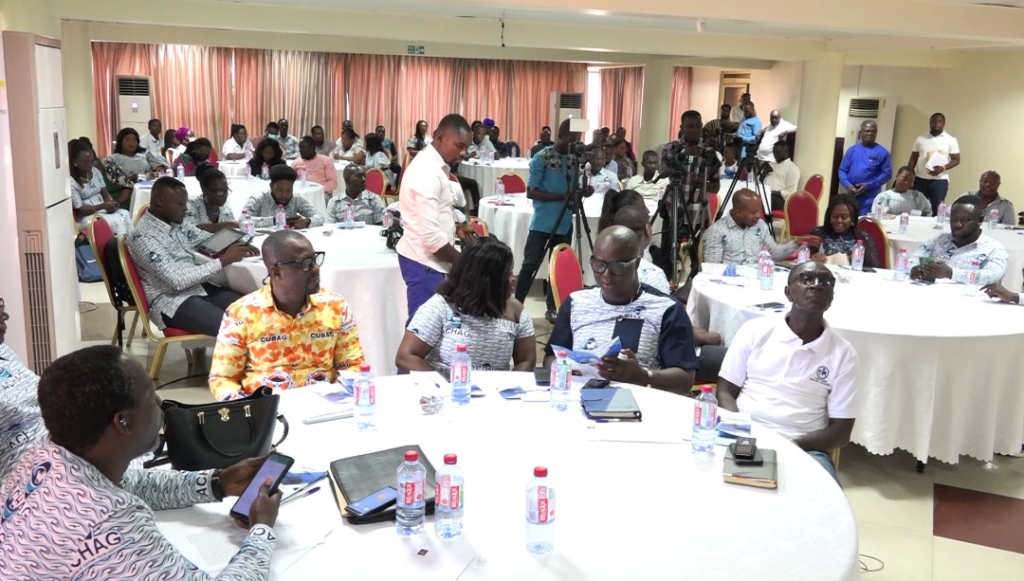President of the Association of Customs House Agents Ghana, (ACHAG), Yaw Kyei has said that businesses at the ports are reeling over challenges leading to months of not paying workers and redundancy in some cases.
Factors including depreciation of the cedi, arbitrary charges, freight charges, surcharge, government policies and a host of others are responsible for this.
Yaw Kyei disclosed this to Joy Business at the opening ceremony of the 2nd Annual General Meeting in Tema on the theme: Achieving State Revenue Target in the Midst of Economic Challenges-The Role of Stakeholders.

“The shipping lines are charging clients of the association port administrative surcharge, port additional surcharge, port dues, port surcharge and global fuel surcharge between of $300 and $340 per 40-footer container,” he said.
According to him, in 2021, a 20-footer container of 15 kilogramme margarine was cleared at ¢52,900, but the same product as at November is being cleared at ¢64,580.

A 2008 model of a saloon car cleared at ¢7,894 in January 2022 is now cleared at GH¢ 15,551 as of now.
Yaw Kyei added that transportation of goods from Tema port to Tamale stood at ¢10, 918 as at April this year but currently cost ¢25,510.,” he cited.
Despite these challenges, ACHAG said there are some positives to highlight including introduction of Integrated Customs Management Systems (ICUMS), policy to clear goods within the three days, introduction of advanced technology, withdrawal of national security from the port, but to mention a few.
On his part, the President of the Ghana Union of Traders Association(GUTA), Dr. Joseph Obeng asked if the country could cope should importation be stopped for six months.
“We are not ready for a repeat of the 1983 experience. Cost of doing business is just too high compared to Togo, Benin and Nigeria,” he lamented.
Shipping lines repatriating the dollar, adding shipping lines charges to freight charges, strengthening the law that established Ghana Shippers Authority are all issues he indicated needed urgent attention.
Dr. Obeng called out the transport minister for delaying submission of a report to the Economic Management Team to address traders concerns.
Deputy Commissioner of Customs in charge Suspense Regime and Chair of Integrated Customs Management System (ICUMS), Emmanuel Ohene said government is investing in technology to ensure competitive ports.
“Customs as one of the stakeholders that benefits directly from this investment has also put in significant measures to ensure this objective is achieved”.
“The main aim has always been to facilitate legitimate trade and that means traders and their agents must be compliant with all rules and regulations governing cross border trade,” he added.
Deployment of ICUMS, introduction of E-auction , Post Clearance Audit module among others are said to facilitate trade.
President of Ghana Institute of Freight Forwarders, Eddie Akrong touched on the need to facilitate trade to help the state achieve its revenue target.
He was however unhappy as the current system makes tax compliance quite difficult.
Mr. Akrong told the gathering of their colleagues at Aflao in the Volta region being on sit-down strike for a week over attempt to site weighing bridge within the same premises where customs business takes place.
“It’s a cause for worry because goods under lock and key and weighed from the port are being subjected to weighing process again. Isn’t it the same Ghana Standards Authority that is in charge of the calibration of all the machines?” he quizzed.
Office Manager for Tema Community 9 Taxpayer Service Centre, Domestic Tax Division of the Ghana Revenue Authority (GRA), Philip Apawu encouraged voluntary payment of tax as GRA has introduced waivers up to December 2022 due to the economic challenges.
“Once you have liabilities, come to our office and pick a waiver form and fill. You will be asked to pay the principal as the interest and penalty are waived. GRA has also set up a desk at its head office to handle electronic and online payment. There is the need to register your business”
President of Customs Brokers Association of Ghana, Nana Fredua Agyeman Ofori-Atta was worried about the various tax exemptions given to foreign investors and asked the Customs Division of GRA to look at it as it impacts the country’s revenue.
Meanwhile, the Head of Freight and Logistics at Ghana Shippers Authority and chair for the AGM, Fred Asiedu Dartey shared some steps taken between 2021 and this year to address the issues affecting businesses at the ports.
“In 2022 just as in 2021, GPHA increased its tariff. After engaging the market and giving GPHA the feedback, there was big reaction from both freight forwarders as well as GUTA. The sector minister asked us to engage the shipping lines which we did with representatives of the freight forwarders and GUTA”,
“After the engagement, we validated the report with GUTA and Committee of Freight Forwarder Association and then submitted it to the minister,” he explained.





